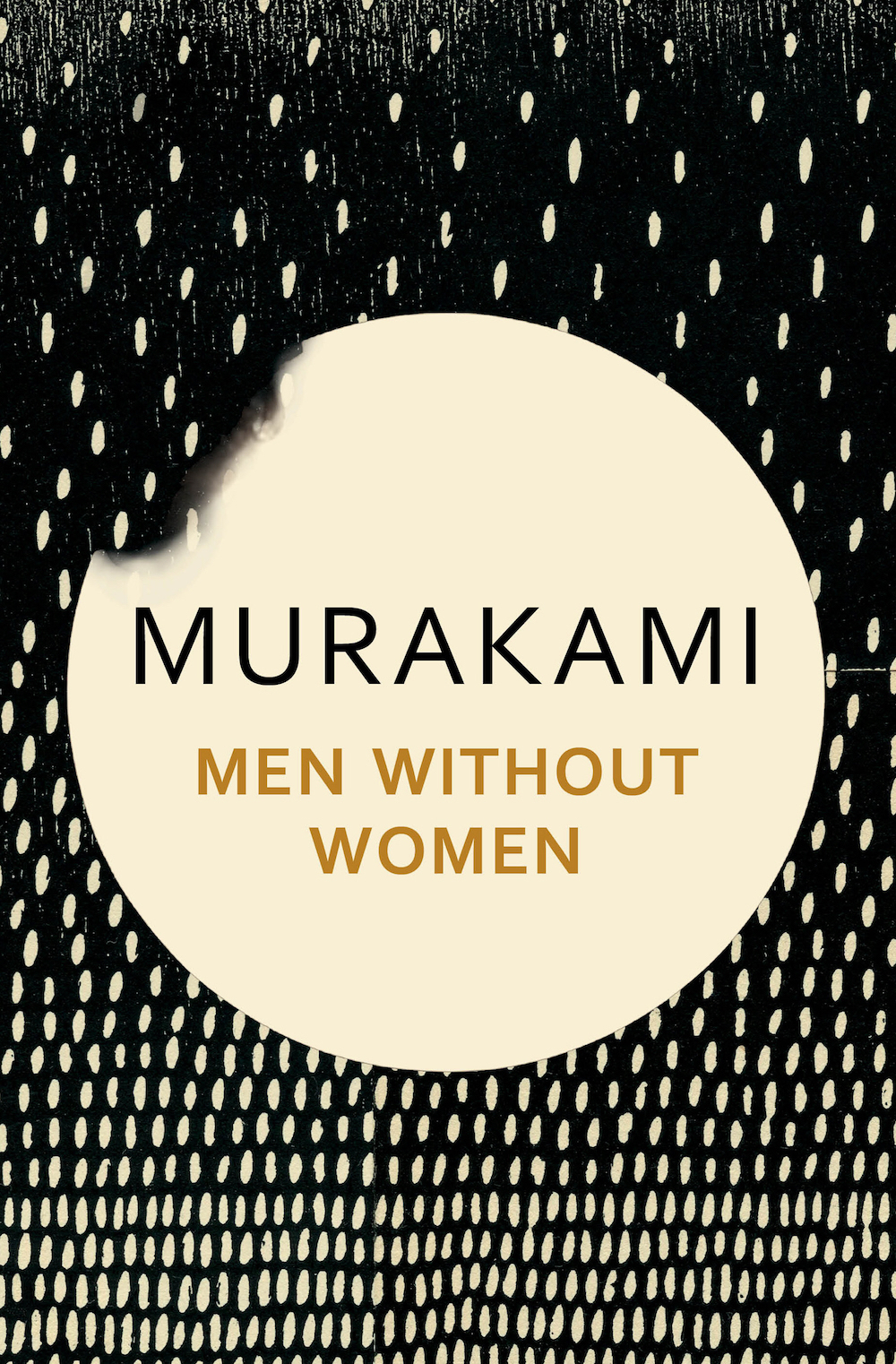Haruki Murakami: Men Without Women review - a bit too abstract and post-modern | reviews, news & interviews
Haruki Murakami: Men Without Women review - a bit too abstract and post-modern
Haruki Murakami: Men Without Women review - a bit too abstract and post-modern
Seven stories about loneliness, questioning and the threads that link us

“I was a lamprey eel in a former life,” says a woman in “Scheherazade”, one of the most intriguing of the seven stories in Men without Women - it was previously published in the New Yorker, as were four of the others in the collection. Murakami is at his best when describing the extraordinary in his precise, simple prose (translated brilliantly by Philip Gabriel and Ted Goossen) and making it feasible.
Most of the stories touch on Murakami’s familiar themes: loneliness, infidelity, time, the strange ways people are intertwined. On the whole, the men have either lost a woman or are about to do so, though in “Samsa in Love”, a new take on Kafka where a creature wakes up one day as Gregor Samsa, there's unexpected joy: a young hunchbacked woman makes Samsa feel “warm inside” and glad to be human, even though he’s not sure what being a human means. Who had he been before? And was this thing – this preposterous body - really him? In “An Independent Organ” a middle-aged cosmetic surgeon who’s always had several girlfriends on the go falls in love for the first time and starts wondering, “Who in the world am I?” Who would he be if stripped of his career and his rights, as the Jews were by the Nazis? This questioning doesn’t lead him to a revelation but to self-erasure.
It’s a relief, after a fair amount of such chilliness, to meet Sheherazade, who’s very much alive. She’s middle-aged, unglamorous, but tells enthralling stories (hence her name) during her twice-weekly visits to Habara. She keeps him hanging on for the next instalment of the story of her teenage obsession with a boy, which drove her to break into his house when everyone was out. There she would sit on the floor, keep absolutely still, and let “cloudy but very pure” lamprey thoughts wash over her before stealing his pencil or T-shirt. The teenage passion she describes is conspicuously lacking in her relationship with Habara. She stocks up his fridge efficiently and has sex with him in the same “deft, business-like” way. Yet Habara feels connected to her, even if only by a slender thread, and is, of course, frightened about losing her.
 This slender thread between men and women links the stories, though sometimes it's all a bit too abstract and post-modern. In the last one, “Men Without Women”, a woman kills herself. Her husband informs the narrator, her ex-lover, in a late-night phone call. He looks back on their time together and the pain he felt when she left him after two years. Tragic, but then we find out that she was the third woman he’d gone out with who’d killed herself. Why? We never know. There’s an abyss of sadness – he feels he’s the loneliest man on the planet, after the husband - but the characters are too unspecific to be satisfying.
This slender thread between men and women links the stories, though sometimes it's all a bit too abstract and post-modern. In the last one, “Men Without Women”, a woman kills herself. Her husband informs the narrator, her ex-lover, in a late-night phone call. He looks back on their time together and the pain he felt when she left him after two years. Tragic, but then we find out that she was the third woman he’d gone out with who’d killed herself. Why? We never know. There’s an abyss of sadness – he feels he’s the loneliest man on the planet, after the husband - but the characters are too unspecific to be satisfying.
“Kino”, on the other hand, is packed with everyday detail about the transformation of a coffee shop into a bar – the wallpaper, the Thorens turntable and the Luxman amp, the old jazz collection - combined with Murakami’s genius for the magic lurking beneath the surface of things. Here he's on top form. There’s a supernatural stranger, a snake invasion, a woman with cigarette burns all over her body and an old willow tree. Somehow they’re all connected, as is Kino’s final realisation that yes, he was deeply hurt by his ex-wife’s affair though he’d felt nothing much at the time. “'Don’t look away, look right at it," someone whispered in his ear. “This is what your heart looks like.”' And Kino, like the other men without women, is grateful for being able to weep, and for silence, and for demons who leave him alone, however temporarily. Small mercies.
- Men Without Women by Haruki Murakami (Harvill Secker, £16.99 hardback and e-book)
The future of Arts Journalism
You can stop theartsdesk.com closing!
We urgently need financing to survive. Our fundraising drive has thus far raised £49,000 but we need to reach £100,000 or we will be forced to close. Please contribute here: https://gofund.me/c3f6033d
And if you can forward this information to anyone who might assist, we’d be grateful.

Subscribe to theartsdesk.com
Thank you for continuing to read our work on theartsdesk.com. For unlimited access to every article in its entirety, including our archive of more than 15,000 pieces, we're asking for £5 per month or £40 per year. We feel it's a very good deal, and hope you do too.
To take a subscription now simply click here.
And if you're looking for that extra gift for a friend or family member, why not treat them to a theartsdesk.com gift subscription?
more Books
 'We are bowled over!' Thank you for your messages of love and support
Much-appreciated words of commendation from readers and the cultural community
'We are bowled over!' Thank you for your messages of love and support
Much-appreciated words of commendation from readers and the cultural community
 Robin Holloway: Music's Odyssey review - lessons in composition
Broad and idiosyncratic survey of classical music is insightful but slightly indigestible
Robin Holloway: Music's Odyssey review - lessons in composition
Broad and idiosyncratic survey of classical music is insightful but slightly indigestible
 Thomas Pynchon - Shadow Ticket review - pulp diction
Thomas Pynchon's latest (and possibly last) book is fun - for a while
Thomas Pynchon - Shadow Ticket review - pulp diction
Thomas Pynchon's latest (and possibly last) book is fun - for a while
 Justin Lewis: Into the Groove review - fun and fact-filled trip through Eighties pop
Month by month journey through a decade gives insights into ordinary people’s lives
Justin Lewis: Into the Groove review - fun and fact-filled trip through Eighties pop
Month by month journey through a decade gives insights into ordinary people’s lives
 Joanna Pocock: Greyhound review - on the road again
A writer retraces her steps to furrow a deeper path through modern America
Joanna Pocock: Greyhound review - on the road again
A writer retraces her steps to furrow a deeper path through modern America
 Mark Hussey: Mrs Dalloway - Biography of a Novel review - echoes across crises
On the centenary of the work's publication an insightful book shows its prescience
Mark Hussey: Mrs Dalloway - Biography of a Novel review - echoes across crises
On the centenary of the work's publication an insightful book shows its prescience
 Frances Wilson: Electric Spark - The Enigma of Muriel Spark review - the matter of fact
Frances Wilson employs her full artistic power to keep pace with Spark’s fantastic and fugitive life
Frances Wilson: Electric Spark - The Enigma of Muriel Spark review - the matter of fact
Frances Wilson employs her full artistic power to keep pace with Spark’s fantastic and fugitive life
 Elizabeth Alker: Everything We Do is Music review - Prokofiev goes pop
A compelling journey into a surprising musical kinship
Elizabeth Alker: Everything We Do is Music review - Prokofiev goes pop
A compelling journey into a surprising musical kinship
 Natalia Ginzburg: The City and the House review - a dying art
Dick Davis renders this analogue love-letter in polyphonic English
Natalia Ginzburg: The City and the House review - a dying art
Dick Davis renders this analogue love-letter in polyphonic English
 Tom Raworth: Cancer review - truthfulness
A 'lost' book reconfirms Raworth’s legacy as one of the great lyric poets
Tom Raworth: Cancer review - truthfulness
A 'lost' book reconfirms Raworth’s legacy as one of the great lyric poets
 Ian Leslie: John and Paul - A Love Story in Songs review - help!
Ian Leslie loses himself in amateur psychology, and fatally misreads The Beatles
Ian Leslie: John and Paul - A Love Story in Songs review - help!
Ian Leslie loses himself in amateur psychology, and fatally misreads The Beatles
 Samuel Arbesman: The Magic of Code review - the spark ages
A wide-eyed take on our digital world can’t quite dispel the dangers
Samuel Arbesman: The Magic of Code review - the spark ages
A wide-eyed take on our digital world can’t quite dispel the dangers

Add comment